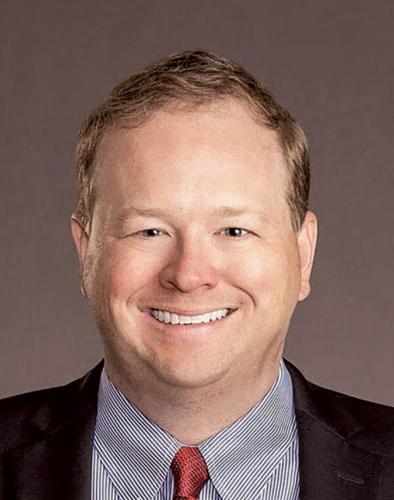Colin Pendrith and Cassie Doutt hadn’t planned on becoming attorneys, but in their own unique ways, they not only found themselves in the legal world, but specifically, franchise law.
With his interest in law sparked by the Toronto International Film Festival, Pendrith began interning in 2010 at Canadian-based firm Cassels Brock and Blackwell. Now an attorney at the firm, Pendrith said he originally came onboard with a focus on entertainment law, but his expertise later evolved in franchising.
“I took a broad cross section of courses and decided that I was either going to be an entertainment lawyer or a litigator,” said Pendrith. “One of the reasons I went to Cassels is it had a very strong litigation practice and entertainment practice.”
At the same time, Pendrith was interested in the human aspect of the law, and franchise work aligned with that goal, giving him a chance to work with people in court on a day-to-day basis. In working with franchisors and franchisees, he began to take a deeper interest in the developing area of franchise law in the early 2010s.
Another Legal Eagles New Class member, Doutt’s journey to franchise law started with a bet centered on passing the bar exam. From that initial spark, Doutt worked her way through several areas of law, including in a district’s attorney’s office.
Finding that space “too earthy,” Doutt said she wanted a more business-forward practice, and took a franchise law class from attorney David Gurnick, which sealed the deal.
“I said to myself, ‘I like this. I like franchise law,’” she said. “It marries a lot of the elements of law that I like under copyright, trademark, business litigation and contracts.”

Alexander Tuneski
She’s now an associate in the Los Angeles office of Lathrop GPM, joining the firm in December 2023. While she’s a recent addition to the firm, Doutt said she’s already noticed several arbitration provision and forum selection clauses not being met in cases.
North of the border, Pendrith is also tracking trends, and said they were similar to those in the U.S., citing joint employer, wages and artificial intelligence as major topics.
Like many, Pendrith sees AI as a tool that will impact the whole industry. While there’s no answer on what the technology will mean for the law and franchisors are still grappling with how to implement it in their systems, Pendrith sees it as the biggest topic in law overall.
Rather than put their attention toward trends, though, the new Legal Eagles are keeping their focus on efficiency for their clients. With cost and time being important to clients, Pendrith said finding a solution that all parties can agree on is a particular point of pride in his work.
Looking ahead
New or experienced, being able to prepare for change is a valuable skill. For Alexander Tuneski of DLA Piper, working with clients through the complicated day-to-day life franchisors are involved in is the majority of his work. From mergers and acquisitions to essentially serving as general counsel, Tuneski falls back on more than 20 years of experience to know what comes next.
“There’s been an increase in regulatory interest in both joint employer issues and potentially having more franchise relationship laws,” said Tuneski. “I think overall the growth of franchising has been almost exponential and constant, and has proven to be a resilient and successful business model.”
Elizabeth Sigety of Fox Rothschild has been in the industry since her family became an area developer for a restaurant franchise. Realizing there weren’t many franchise lawyers 20 years ago, she stepped into an open role after practicing as a finance lawyer.

Colin Pendrith
From a financial perspective, Sigety has seen more interest in private equity and investment options. Another, more problematic issue Sigety has been seeing in her work is franchisors who grow too quickly instead of adequately preparing for expansion.
“They don’t think about the future enough,” said Sigety. “That can be a mix of things. Not just on the legal side, but also technology and staffing. Making sure deals are fair on both sides is another hurdle for emerging franchisors to keep an eye on.”
Like Pendrith, Tuneski sees AI as the next big thing for franchise attorneys to worry about. With regulations changing rapidly and clients already utilizing the technology, research and understanding are key to keeping ahead of future legal hiccups.
“We’re seeing it now where a lot of franchisors are dipping their toes into it and starting to get an idea of what the possibilities might be,” said Tuneski. “I would expect that would continue to expand as we look at the regulatory environment.”
Sigety and Tuneski are also paying attention to stricter joint employer regulations. Since the National Labor Relations Board’s final decision is coming into play, learning how franchisors and franchisees will be impacted is crucial.
“You really have to have the forethought and frankly the legal budget in order to comply with all of those laws, because it’s huge,” said Sigety. “I think that’s something people are going to be grappling with in all businesses, including franchising.”
2024 Hall of Fame
Daniel Warshawsky, Warshawsky Seltzer
Alejandro Brito, Brito PLLC
Alexander Tuneski, DLA Piper
Josh Brown, Taft Law
Elizabeth Sigety, Fox Rothschild
2024 New Class
Cecilia Miranda, Brito PLLC
Ryan Schildkraut, Winthrop & Weinstine, P.A.
Stuti Murarka, Cheng Cohen LLC
Keri McWilliams, Nixon Peabody LLP
David B. Ramsey, Kaufmann Gilden & Robbins LLP
Christine Jackson, Osler Hoskin & Harcourt LLP
Todd Jones, Snell & Wilmer
Andrew Donovan, Cheng Cohen LLC
Derek Colvin, Waldrop & Colvin
Cassie Doutt, Lathrop GPM
Christopher Horkins, Cassels
Jonathan Labukas, Quarles & Brady
Laura Lewis, Canada Lewis
Michelle Murray-Bertrand, Kaufmann Gilden & Robbins LLP
Clark Harrop, Dale & Lessman LLP
Colin Pendrith, Cassels
Kristen Cherry, Baker & McKenzie LLP
Hashim Elwazir, Baker & McKenzie LLP

